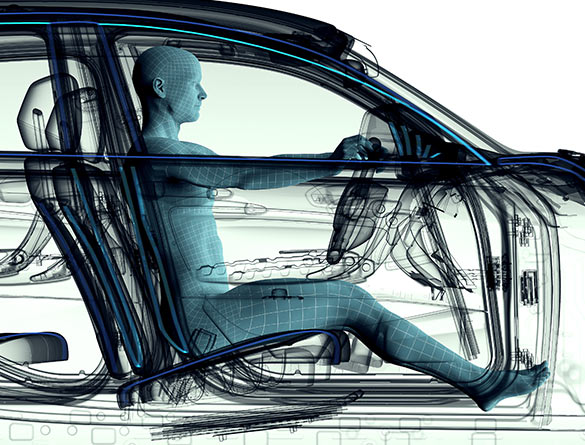Our vision for the future of transport and TRL’s expertise is intrinsically connected with our past. For over 80 years TRL has been testing products used in ground transportation systems.
TRL is at the forefront of transport safety research. The testing we undertake and/or manage is either for research and development, regulatory compliance purposes or to provide evidence as part of collision investigations. Until very recently, testing was conducted at our site in Crowthorne, Berkshire. Today, most testing is done at other locations, but the methodology, process, and management of the tests is still led by our teams, and it is their experience that translates the outcomes of those tests for OEMs, governance organisations and regulators, guiding their decisions and policies.
As we undergo a revolution in the way we use and create transport systems, our past research is a foundation for understanding the impact of new mobility solutions. Our new test centre is in the heart of London at the Smart Mobility Living Lab (www.smartmobility.london). It is not a closed laboratory, it is the streets of the city, with additional infrastructure to capture and measure the performance of the people and the vehicles moving around it.
TRL’s knowledge of safety issues in human driven vehicles is now being extended to accommodate partially automated vehicles, and anticipating fully connected and autonomous vehicles (CAV). As policy makers encourage more active transport modes (walking and cycling), this will mean more vulnerable road users share the streets. As our transport system evolves and becomes more integrated, the emphasis will shift from the safety of vehicle occupants to the safety of all road users. Testing will move away from component and system validation, to a system of systems approach which requires a much greater degree of expertise.
The Smart Mobility Living Lab is a real-world, connected environment for testing future mobility technologies, services and business models.
Bespoke test methods
- Evaluating products using non-standard tests, such as recreating how the product is actually used by the user to determine a product failure mode.
- Recreating a collision or an incident as part of a police or legal investigation.
This practice of bespoke testing is the perfect preparation for testing in the Smart Mobility Living Lab where the test requirements will be unique for every customer.
Crash test dummies
TRL has been involved in the development and validation of many of the crash test dummies used in laboratories and test centres around the world. All the data accumulated from 80 years of testing is today being used to understand and assess concepts for new connected and autonomous vehicles. However, instead of physical testing with dummies, testing is done in simulators, on computer engineering models, and using virtual reality applications.
Driving simulator
We have a high fidelity driving simulator to test or manipulate factors that affect the performance of the driver, the road environment, driver satisfaction and vehicle technology. Find out more >
Independence, credibility and authority
Testing and assurance services can be procured across the globe. TRL offers a winning combination of proven expertise of a depth and breadth unprecedented elsewhere in the UK, and total independence.
The Smart Mobility Living Lab is the ultimate test environment; if it works here, it will work in any city. Being 100% in the real world, the opportunities for testing are unique, and the integrity of the results unquestionable.

